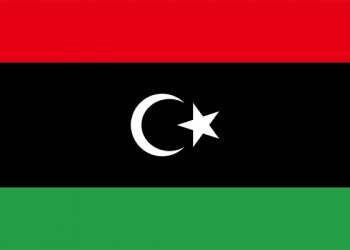The Conversation
07 Feb 2022, 18:38 GMT+10
Scott Morrison has announced Australia’s international border will finally open on February 21 and is deploying up to 1700 Australian Defence Force personnel to help with the aged care crisis, as he prepares for a torrid parliamentary sitting.
Nearly two years after the border was shut, tourists and other visa holders will now be able to come to Australia.
They will need to be double vaxxed – but not triple vaxxed, as is being recommended for Australians locally. Anyone not fully vaccinated will need a valid travel exemption, and will have to meet state and territory quarantine requirements.
The restrictions have been recently lifted for some entrants to Australia, including students, but the tourist industry has continued to suffer from visitors not being allowed to come.
The deployment of defence personnel into aged care will include clinical support teams, and general support help as well as logistical and planning assistance.
Four quick response teams, consisting of nurses and general support staff, will be deployed this week. This will expand to ten teams from next week.
Defence is preparing specialist teams of 50 personnel in the four states under greatest pressure – Queensland, NSW, Victoria and South Australia. It will expand this up to 200 people in each state and territory, or up to 1700 personnel, if needed.
Over the weekend, ADF personnel undertook training for the deployment and joined civilian staff in aged care facilities.
Some of the work they will do includes screening people coming into facilities, providing companionship to residents, helping with meals, and other duties to take pressure off qualified aged care workers and medical staff. They will assist with medical duties where they are qualified.
Morrison, who has repeatedly said the ADF is not a shadow aged care workforce, stressed that this was “a very targeted bespoke effort”. He pointed out that aged care was an industry where there were 285,000 workers.
The sector is being hit with acute staff shortages as workers are off duty because they have COVID or are furloughed because they are close contacts. The result has been diminished care for many residents. In some facilities, residents have been in effective lockdown because of COVID outbreaks, unable to see their families.
The announcements came ahead of parliament’s resumption on Tuesday, when the government will be under attack over a range of issues including the aged care crisis and leaked text messages attacking the prime minister’s character.
The government is also struggling with internal division over its religious discrimination legislation, which it had hoped to have passed this week. The legislation is due to be debated in the House of Representatives on Tuesday.
A number of moderate Liberals are critical of the legislation. Bridget Archer, who holds the highly marginal seat of Bass in Tasmania, on Monday threatened to cross the floor.
“I’m not sure that there’s any way to bridge the divide between the bill as it currently looks like and my concerns.”
“So as it is I’m not sure how I can support it”, Archer told the ABC.
Archer said she was concerned about the legislation overriding Tasmanian anti-discrimination laws.
As he tries to placate moderate critics, Morrison has promised separate legislation that would ban schools from expelling students on the basis of their sexuality.
Morrison told a news conference on Monday that the religious discrimination legislation was “an important bill”.
He said Labor had put measures into the sex discrimination act that meant children could be expelled because of their sexuality. He was proposing to put forward an amendment to this.
Author: Michelle Grattan – Professorial Fellow, University of Canberra







